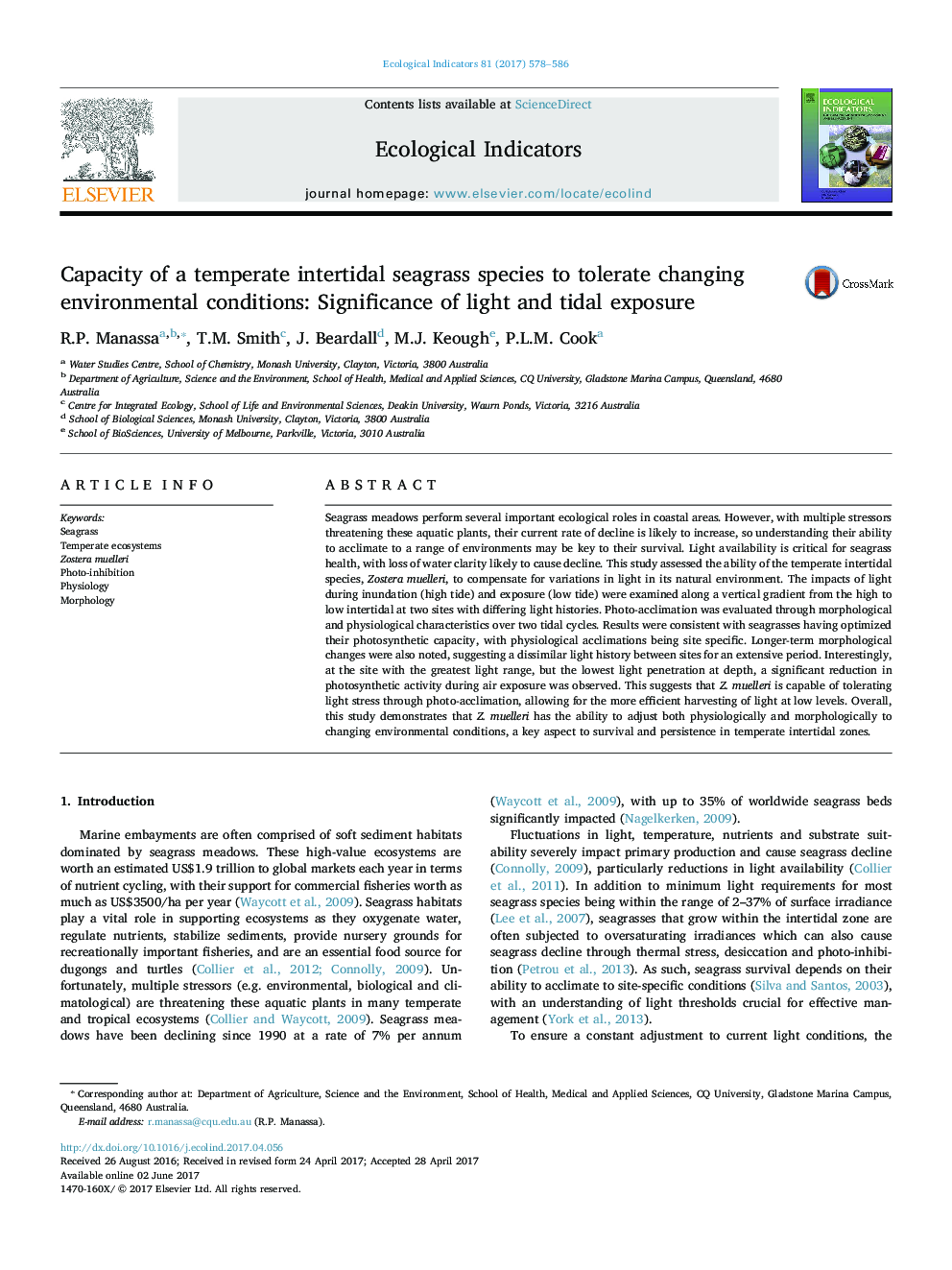| Article ID | Journal | Published Year | Pages | File Type |
|---|---|---|---|---|
| 5741459 | Ecological Indicators | 2017 | 9 Pages |
â¢Z. muelleri can tolerate light stress during air exposure through photo-acclimation.â¢Synergistic relationship between light and tidal exposure for intertidal seagrasses.â¢Seagrasses with varying light history respond differently to increased irradiances.â¢Site-specific studies essential to inform management decisions.
Seagrass meadows perform several important ecological roles in coastal areas. However, with multiple stressors threatening these aquatic plants, their current rate of decline is likely to increase, so understanding their ability to acclimate to a range of environments may be key to their survival. Light availability is critical for seagrass health, with loss of water clarity likely to cause decline. This study assessed the ability of the temperate intertidal species, Zostera muelleri, to compensate for variations in light in its natural environment. The impacts of light during inundation (high tide) and exposure (low tide) were examined along a vertical gradient from the high to low intertidal at two sites with differing light histories. Photo-acclimation was evaluated through morphological and physiological characteristics over two tidal cycles. Results were consistent with seagrasses having optimized their photosynthetic capacity, with physiological acclimations being site specific. Longer-term morphological changes were also noted, suggesting a dissimilar light history between sites for an extensive period. Interestingly, at the site with the greatest light range, but the lowest light penetration at depth, a significant reduction in photosynthetic activity during air exposure was observed. This suggests that Z. muelleri is capable of tolerating light stress through photo-acclimation, allowing for the more efficient harvesting of light at low levels. Overall, this study demonstrates that Z. muelleri has the ability to adjust both physiologically and morphologically to changing environmental conditions, a key aspect to survival and persistence in temperate intertidal zones.
